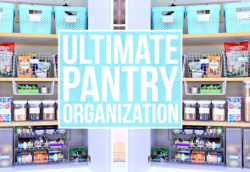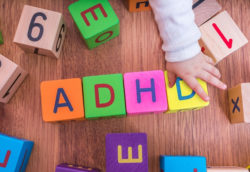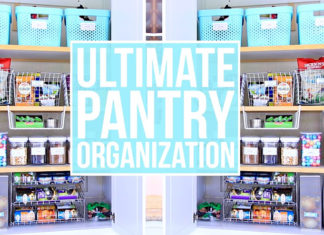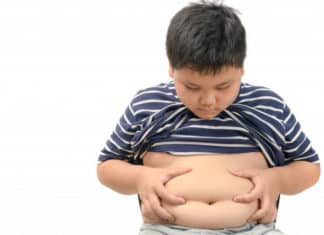What is codependency parents? Are you a co-dependency parent? What is the sign of a codependent parent? What are the ways to handle or deal it? Are you stress enough for all this ample number of question in your mind. Don’t freq out we will answer all your doubts about codependency parents in this article.
The codependency relationship is more on about the parent and children.in a co-dependency parent relationship, the line is always between protective and obsessive, engaged and often blurred beyond recognition. the codependency parents are something difficult to recognize.
In this article, we will focus more on brief information on what is all about the co-dependency parent and what is the sign that you are a codependent parent.
What is Parental Codependency?

“Codependency refers to a psychological construct that involves a type of unhealthy relationship that people share with those close to them” as per positive psychology program. It was originally believed that it is mostly involved in case of families of substance abuse but now it is been proved to include with other types of dysfunctional relationships too.
Parental codependency (R) occurs when the parent’s own some level of codependency paradigm that interferes with healthy parental decision-making. The parents are not being able to set and maintain a particular level of limits and boundaries that children need or except.
Parental codependency is a “relationship addiction” studies have proved that is often seen in parent and child relationship (R). The degree of control they have over their children makes them more prone to be a parental co-dependency. They have a sense of empathy more than in the case of narcissist parents (R).
Sign of Co-dependency Parents:
There are a certain sign of a co-dependency (R) as per Mental health American, they are as follows
- Low self Esteem (R)
- Low level of narcissism
- Familial dysfunction
- Depression (R)
- Anxiety (R)
- Stress (R)
- Having a hard time saying no
- Having poor boundaries (R)
- Emotional reactivity
- Always feeling compelled to take care of people
- A need for control, especially over others
- Trouble communicating honestly
- Fixating on mistakes
- A need to be liked by everyone
- A need to always be in a relationship
- Denying one’s own needs, thoughts, and feelings
- Intimacy issues
- Confusing love and pity
- Fear of abandonment
- Low emotional expressivity
Signs That You Are a Co-Dependent Parents:

1. The Co-dependency Parents has a Victim Mentality:
The co-dependency parents believe that the best people in their life especially their children owe them for a wrong committed against them. this lead to a guild tripping behavior that intended to sympathy for a negative experience from their children. The parents end goal of altering child behavior in somewhat they are right.
More ever than dealing with the traumas and difficulties in their own life by any healthy means as of self-reflection and therapy, the codependent parent latches onto a child and demands compensation that can lead many forms.
At many times the co-dependent parents will live vicariously through a child. If a child shows any kind of taking their own path of discussion or action in life then thew co-dependent parent will use guilt to manipulate the child into compliance.
2. The Co-dependency Parents Over Manage the Child Life or Environment:
A codependent parent’s feel a sense of self that may affect by depending on the child too much or the relationship with the child hamper with a result of parental co-dependency. A codependent parent only feels ok when things are ok with the child life or environment.
The codependent parent tries to be more rigidly control over the child’s environment, behavior, or appearance than the dependency parents. Moreover the codependent parent may become overly involved in figure outing things to ‘fix’ any hurdle or ‘solve’ any problem giving the child a difficult time.
This results in over-managing functions to feel a sense of control over one’s own internal emotions that they get it from a child.
3. The Co-dependency Parents has an Intimacy Problem:
Co-Dependency parents subtly or overtly push their primary partner away from them so that they can focus more and more on their children.
The parents become so connected turned into their child into their primary relationship that becomes secondary. They have a fear that the primary relationship will somehow underestimate with the unhealthy attachment with their child.
4. The Co-dependency Parents are Never Wrong:
In a co-dependency parent-child relationship, the parents are always right no matter the child is an adult and even too capable of taking their own decision. The co-dependency parents will be always in a mood of denied to approach an argument or discussion with openness. They will run away from the possibility of being wrong. They will more impose to their own point of view over the discussion that they are correct and will prove their point as a right by default.
Even if the co-parents is wrong they will not apologize, if they do then it will come off as forced or insincere. The co-dependency parents are absolute dominance over their child. Any sense of wrongdoing will be a sign of weakness and an invitation to challenge their dominance in the parent-child relationship.
5. The Co-dependency Parents is Overly Emotional:
The co-dependency parents feel that they are losing control over a situation or upper hand in an argument they will restore to crying, screaming and other act of intimidation to maintain the balance of the situation in their favor. The co-dependency parents will often accuse the child of being insensitive or ignored altogether.
The parental dependency has refined crying, yelling, temper tantrums, and silent treatment into an art form. If the child expresses anger or hurt, the co-dependency parents get unusually angry no matter how genuine their kids are.they are more prone to manipulative of things.
6. The Co-dependency Parents Never Listens:
“Speaking to a co-dependency parent is like talking to a brick wall”. the co-parents never listen to any argument or any sort of discussion. They always stick to their point and no matter they give up their point even they are wrong. They go in a single direction of words and will not move their direction. The codependent parent will refute the facts or move onto a different argument without addressing the point being made logically true. They are too dominating in their words over others.
The children try to avoid the co-dependency parents as much as they can in order to have a communication.even if you provide them with a logical argument they would cause a normal person to reevaluate their position.
7. The Co-dependency Parents Has a Mood Swing:
The co-dependency parents will rapidly shift from one mood to another in order to avoid responsibility and guilt.they have drastic mood swing with no minutes. The parental co-dependency may be yelling and screaming in one minute .they get sulk in an effort to rebuff any guilt as for the a power play a great role. They love to impose rules and regulation on their children. If their children don’t follow it they get angry, depress and other forms of mood swing.
8. The Co-dependency Parents Manipulates Subtly:
This form of the sign that co-dependency parents definitively have within them. The co-dependent parent does not usually manipulate because they want to, they manipulate because they have to . they don’t know any other means to communicate with their children in order to get their direct control over them. The codependent parent will leave the child in a state of confusion, wondering who really is what.
The co-dependency parents will manipulate with emotion, finance, guilt, etc in order to maintain the imbalance of codependent relationship between them and their children. The manipulative power plays a great simultaneous mastery and obliviousness.
9. The Co-dependency Parents Maintain Control at Any Costs:
The main aim of co-dependency parent is to have control over their children. The codependent parent seeks to gain by controlling the adult children too. Codependent parents expect a level of devotion and love from their children that is unhealthy and unnatural, which intended to make up for that which they lack in other relationships.
In some cases, the co-dependency parents even can’t share their children with any other too. They don’t even allow them to settle with other people in a later phase of life too.
Tips for Co-dependency Parents
Here are few ideas or tips that can help you to mitigate co-dependency in parenting.they are as follows
- Teach children that their value doesn’t come from any pleasing you or anyone else.
- Encourage positive self-talk within yourself.
- Being mindful of their safety and allow children the freedom and opportunity to explore and solve their own problems in an age-appropriate way.
- Manage your own feelings that come up while you experiment with this kind of situation.
- Emotionally don’t neglect your children.
- Ask for help from someone that feels safe to hold you accountable.
- Practice your own self-care (R) and mode about how to satisfy your own needs in a healthy way.
- Don’t be overly controlling or overly pampering to your children. Doing so may result in some children creating a dependency on others and an inability to make independent decisions, while other children can take on too much responsibility which will force to give up their childhood phase of time.
This article will help all the parents to know whether they are co-dependency parent or not. In the end, it will also help you to guide you in practicing better parenting style for your children. The parent will have an awareness of the way they behave and think that enmeshment a healthy parent-children relationship.









































